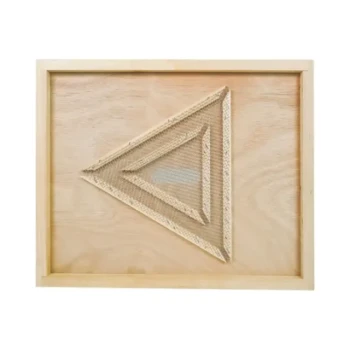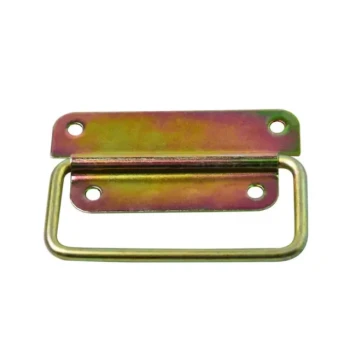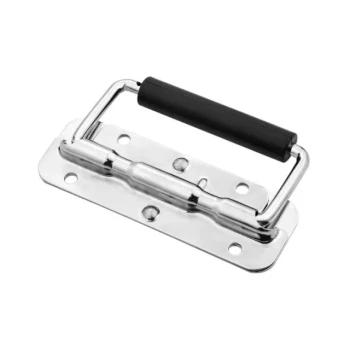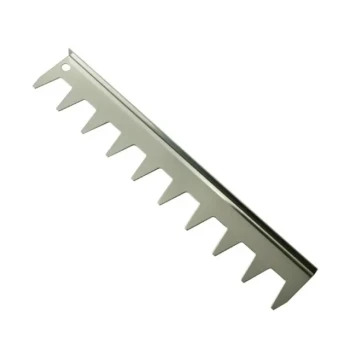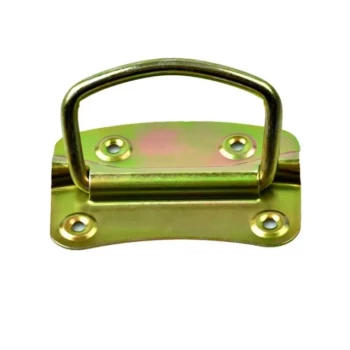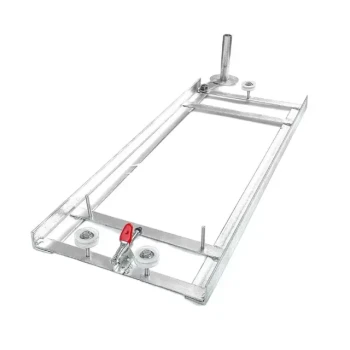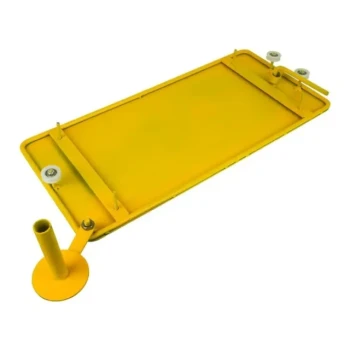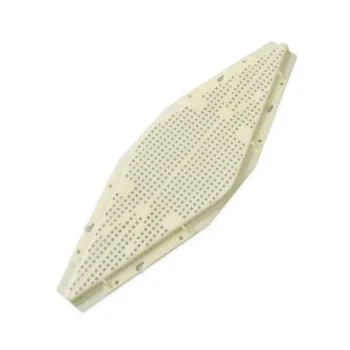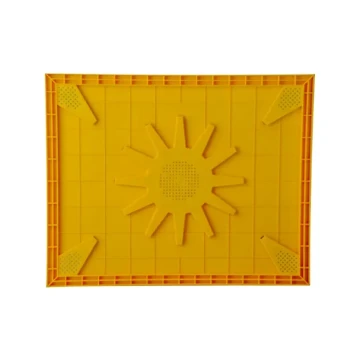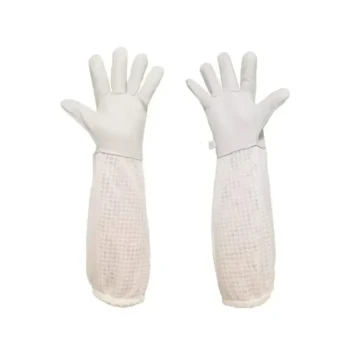In short, a stainless steel wire mesh floor offers superior durability, corrosion resistance, and ease of cleaning. These properties create a healthier hive environment by improving ventilation, simplifying maintenance, and providing a passive defense against pests like the Varroa mite.
The choice of a beehive floor is not merely structural; it is a critical decision for hive health and management. Using a stainless steel mesh floor is a long-term investment in colony vitality, simplifying pest control and sanitation while maximizing the hive's lifespan.

The Core Benefits of a Mesh Floor
Before focusing on stainless steel specifically, it's important to understand why a mesh floor, often called a "screened bottom board," is a powerful tool for any beekeeper.
Superior Ventilation and Moisture Control
A mesh floor provides constant, gentle airflow throughout the hive. This ventilation is critical for preventing the buildup of excess moisture.
Proper airflow dramatically reduces the risk of mold and fungus growth, which can stress or harm the colony. It also helps vent waste gases, creating a healthier internal atmosphere for your bees.
Integrated Varroa Mite Management
The Varroa destructor mite is one of the greatest threats to honey bee colonies. A mesh floor is a simple yet effective tool for managing them.
When mites fall off a bee, they drop through the mesh and cannot climb back into the hive. This passive removal constantly lowers the mite population without chemical treatments, reducing stress on the colony.
Simplified Cleaning and Maintenance
Debris such as wax cappings, pollen, and dead bees naturally accumulates at the bottom of the hive. A mesh floor simplifies cleaning immensely.
Most screened bottom boards have a removable tray or "sticky board" underneath. You can slide this out to inspect debris or clean it without opening the hive and disturbing the bees, making maintenance faster and less intrusive.
Why Stainless Steel is the Premier Choice
While any mesh provides the benefits above, the material you choose has significant implications for durability, sanitation, and long-term value. Stainless steel consistently proves to be the superior option.
Unmatched Durability and Lifespan
Stainless steel is exceptionally strong and resistant to physical damage. It will not sag, stretch, or break under the weight and activity of a full colony.
Although it has a higher initial cost, its extreme longevity makes it the most cost-effective choice over the long term. A stainless steel mesh floor can easily outlast the wooden components of the hive itself.
Ultimate Corrosion Resistance
A beehive is a demanding environment, exposed to rain, humidity, and the natural acids within the hive. Stainless steel is inherently resistant to rust and corrosion.
This means it will not degrade or leach potentially harmful oxides into the hive, ensuring a purer environment for the bees compared to other metals.
The Easiest Material to Sanitize
The non-porous surface of stainless steel makes it incredibly easy to clean and sanitize. Bacteria and other pathogens cannot gain a foothold.
It can be scraped, brushed, or even sterilized with heat without damage, ensuring you can maintain the highest level of hygiene for your colony.
Understanding the Trade-offs and Alternatives
While stainless steel is the top-tier option, it's important to be aware of the alternatives and their respective characteristics to make an informed decision.
The Initial Cost Factor
The primary drawback of stainless steel is its higher upfront purchase price compared to other mesh types. It should be viewed as a long-term investment in hive durability and health.
Alternative 1: Galvanized Steel Mesh
Galvanized steel is a common and practical alternative. It is coated in zinc to provide good resistance to rust and corrosion.
It offers many of the same structural benefits as stainless steel at a lower price point, making it a solid, budget-conscious choice for many beekeepers.
Alternative 2: Epoxy-Coated Mesh
This type of mesh has a protective black epoxy coating over the steel, which offers an extra layer of rust protection.
The black coating can also absorb solar radiation, which may help warm the hive slightly in cooler climates. However, this coating can potentially chip or degrade over time, unlike solid stainless steel.
Making the Right Choice for Your Apiary
Your choice of mesh should align with your goals, budget, and local climate.
- If your primary focus is maximum longevity and purity: Choose stainless steel for its unparalleled durability, corrosion resistance, and ease of sanitation.
- If your primary focus is a balanced, budget-conscious approach: Choose galvanized steel, which offers good durability and rust resistance at a more accessible price.
- If your primary focus is hive warmth in a cooler climate: Consider epoxy-coated mesh for its heat-absorbing properties, but be prepared to monitor the coating's integrity over time.
Ultimately, investing in a high-quality mesh floor is a direct investment in the health and productivity of your colony.
Summary Table:
| Feature | Stainless Steel | Galvanized Steel | Epoxy-Coated |
|---|---|---|---|
| Durability & Lifespan | Exceptional, can outlast the hive | Good, solid choice | Good, but coating may degrade |
| Corrosion Resistance | Excellent, will not rust | Good, zinc-coated for protection | Good, extra coating layer |
| Ease of Sanitization | Excellent, non-porous surface | Good | Good, but coating may chip |
| Initial Cost | Higher (Long-term investment) | Moderate (Budget-friendly) | Moderate |
| Best For | Maximum longevity & purity | Balanced, cost-effective approach | Added warmth in cool climates |
Ready to Invest in the Health of Your Apiary?
Upgrade your beekeeping operation with the superior durability and hygiene of a stainless steel mesh floor from HONESTBEE. We supply high-quality beekeeping supplies and equipment directly to commercial apiaries and beekeeping equipment distributors through our wholesale-focused operations.
By choosing HONESTBEE, you gain a reliable partner dedicated to the vitality of your colonies and the efficiency of your business.
Contact HONESTBEE today to discuss your wholesale needs and discover how our equipment can contribute to your long-term success.
Visual Guide
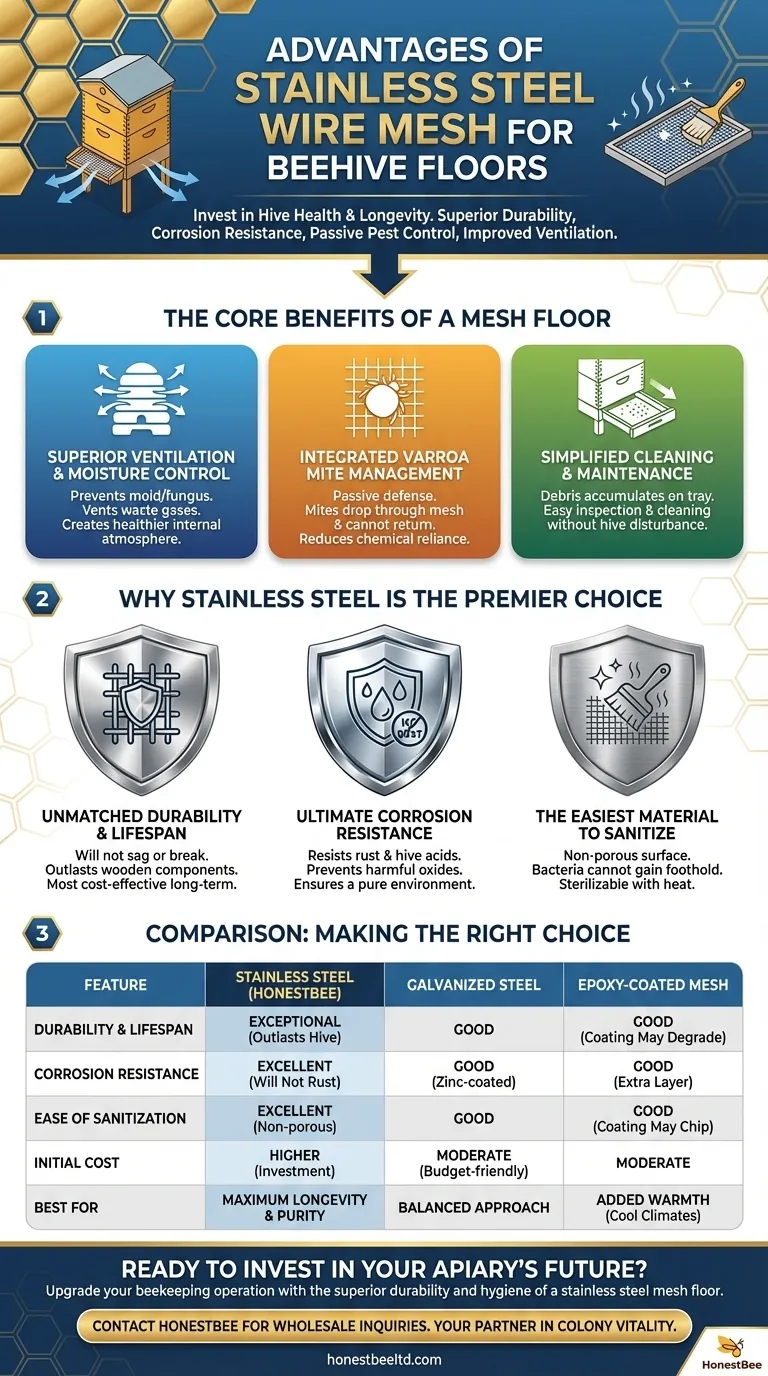
Related Products
- Australian Pine Wood Langstroth Screen Bottom Board for Wholesale
- Langstroth Screen Bottom Board for Beekeeping Wholesale
- HONESTBEE Wooden Bee Escape Board with Triangle Mesh Design for Beekeeping
- Professional Galvanized Hive Strap with Secure Locking Buckle for Beekeeping
- Professional Drop-Style Hive Handles for Beekeeping
People Also Ask
- Why is it critical to use paradichlorobenzene for beekeeping frames? Protect Your Honey and Colony from Wax Moths Safely
- Why are monitoring and management devices essential for controlling invasive predators? Protect Your Apiary Today
- Why is the controlled storage of old honeycombs essential for preventing wax moth? Protect Your Beekeeping Assets
- Why are sustainable pest control solutions essential for honeybees? Combat Climate-Driven Mite Surges Effectively
- What is a mouse guard for a beehive? Essential Protection to Shield Your Colony from Rodent Damage
- What are some methods to get rid of ants in beehives? Protect Your Hive with Proven Strategies
- What is the recommended procedure for handling hive equipment from a colony that died of AFB? Protect Your Apiary Now
- Why are high-efficiency pest and disease control consumables critical? Secure Your Top-Bar Hive Profits


